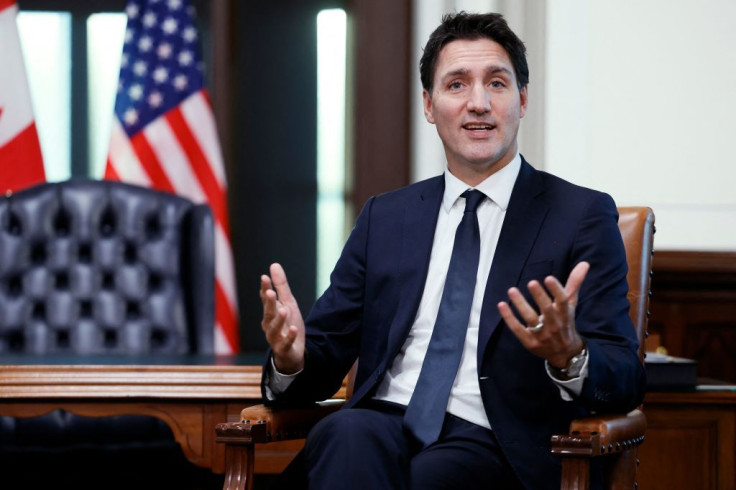
Canadian Prime Minister Justin Trudeau has pledged to bolster border security following a meeting with President-elect Donald Trump in Florida. Public Safety Minister Dominic LeBlanc, who also attended the meeting, said the country will take "visible and muscular" steps to enhance security along the countries' shared border.
Measures under consideration include deploying additional drones, procuring more police helicopters, and reallocating personnel to key areas. The leaders also discussed trade and other shared issues.
LeBlanc emphasized that the discussions with Trump were productive, addressing the president-elect's concerns about drug trafficking and migrant smuggling. He told the Canadian Broadcasting Corporation (CBC) that Canada believes the border is already secure but will take further action to demonstrate commitment. "It's important to show Canadians and the Americans that we're stepping up," LeBlanc said.
Trump, who has threatened to impose tariffs on Canadian imports if Ottawa fails to curb illegal crossings and drug trafficking, praised Trudeau's commitment on Truth Social. He said that Trudeau agreed to work with the U.S. to tackle the issues.
Tariffs remain a pressing concern for Canada, which sends 75% of its exports to the U.S. LeBlanc acknowledged the economic risks, saying he discussed the potential impact of tariffs with Trump and Commerce Secretary nominee Howard Lutnick during the meeting. Trudeau highlighted the interconnected nature of the two economies and expressed optimism that the U.S. would see the mutual harm tariffs could cause.
The meeting also touched on gun smuggling from the U.S. into Canada. Canadian officials plan to address this issue alongside border security improvements. LeBlanc said more details would be announced in coordination with the finance minister in the coming weeks.
Despite previous tensions between Trump and Trudeau, including Trump's harsh criticism of Trudeau in 2018 and 2022, LeBlanc described the dinner as cordial. Trump called the meeting "very productive" and personally saw Trudeau off, saying, "Keep in touch. Call me anytime."
The meeting follows a statement from a Canadian government official, speaking anonymously to CBS News, who confirmed that the country is evaluating options for counter-tariffs on U.S. imports but stressed that no final decision has been made.
Trump's proposed tariffs, announced earlier last week, are set to take effect on his first day in office as part of his broader plan to curb undocumented immigration and illicit drug trafficking from Canada and Mexico, both of which Trump has accused of "bringing crime and drugs" to the U.S. Experts warn that a trade war could severely disrupt trade between these countries and potentially trigger inflation and recession in their economies.
Trump's tariffs on Canadian goods would target industries critical to the country's economy, including the automotive one. According to economist Michael Davenport from Oxford Economics, these tariffs could push Canada into a recession by 2025, with inflation possibly exceeding 7% and unemployment reaching 8% by the end of the year. Davenport noted that Canada's manufacturing sectors, which rely heavily on exports to the U.S., would be among the hardest hit, with disruptions to supply chains and increased costs due to tariffs on U.S. imports.
© 2025 Latin Times. All rights reserved. Do not reproduce without permission.





